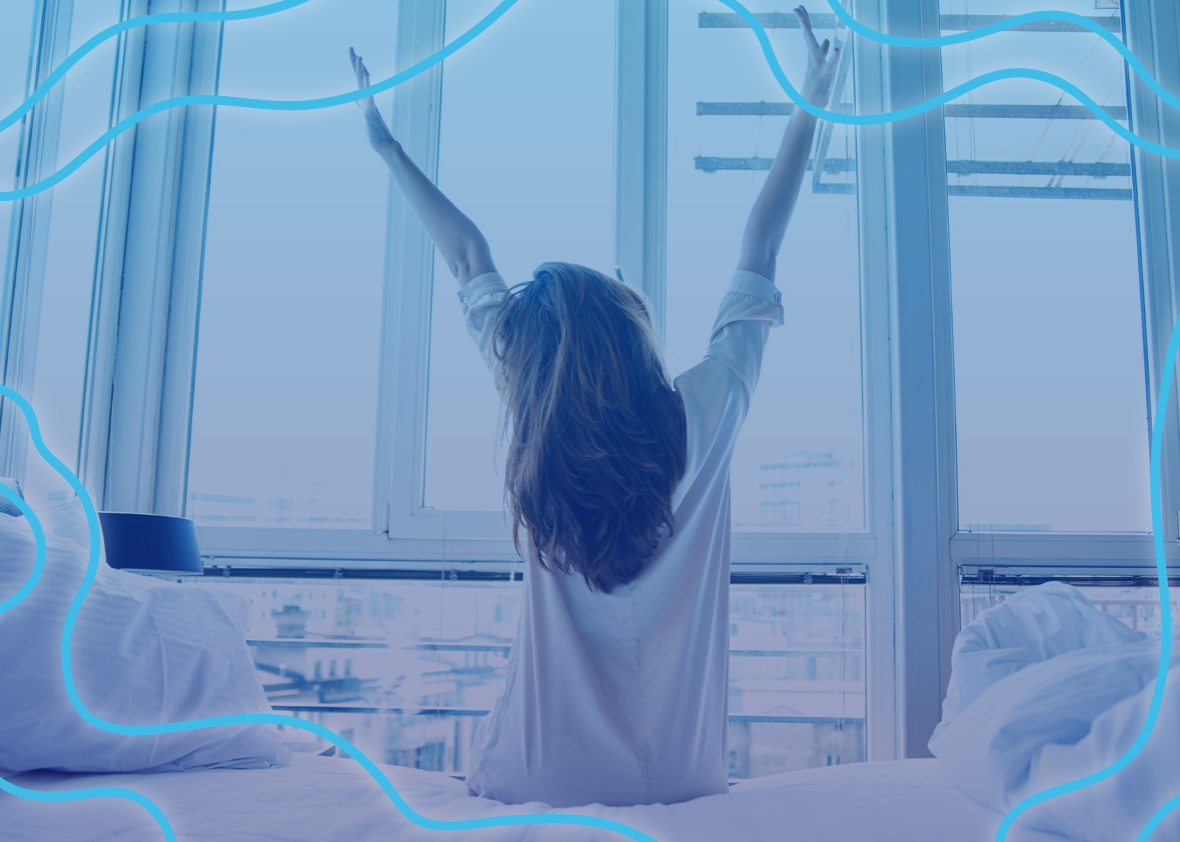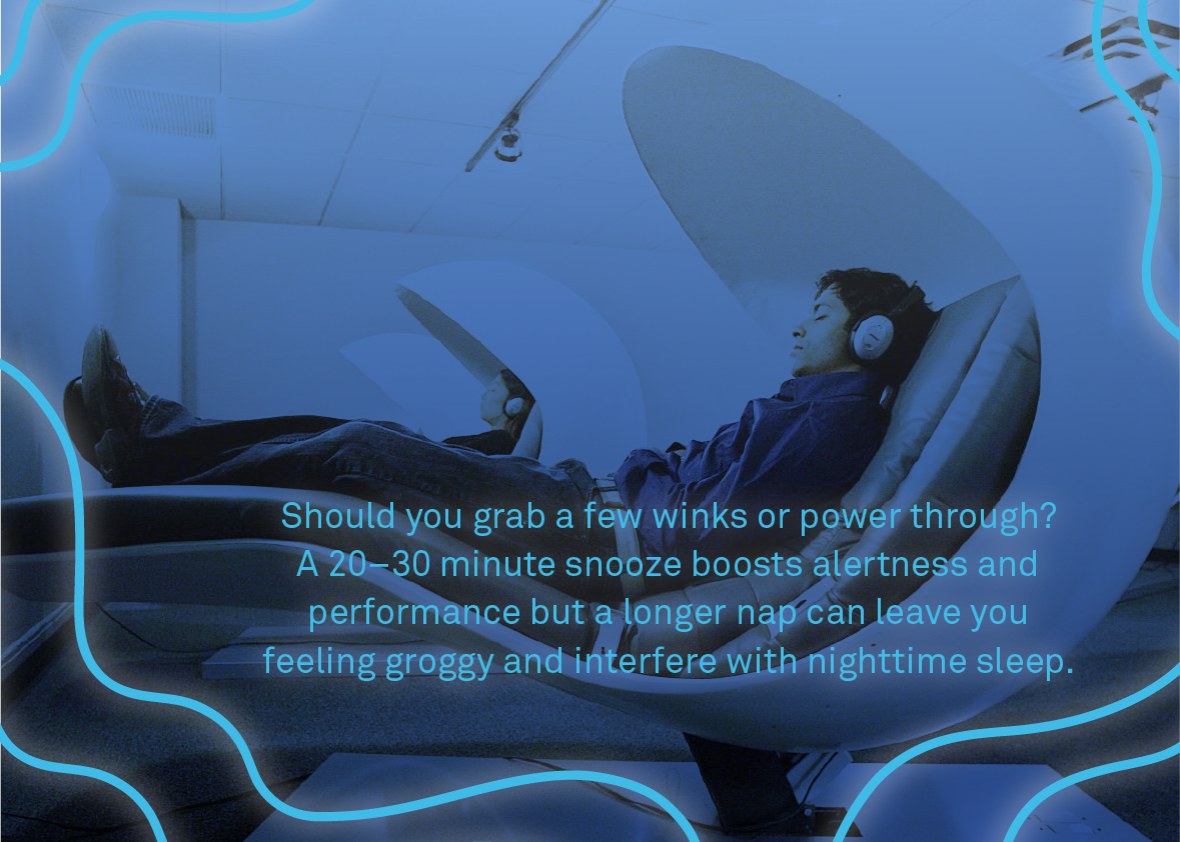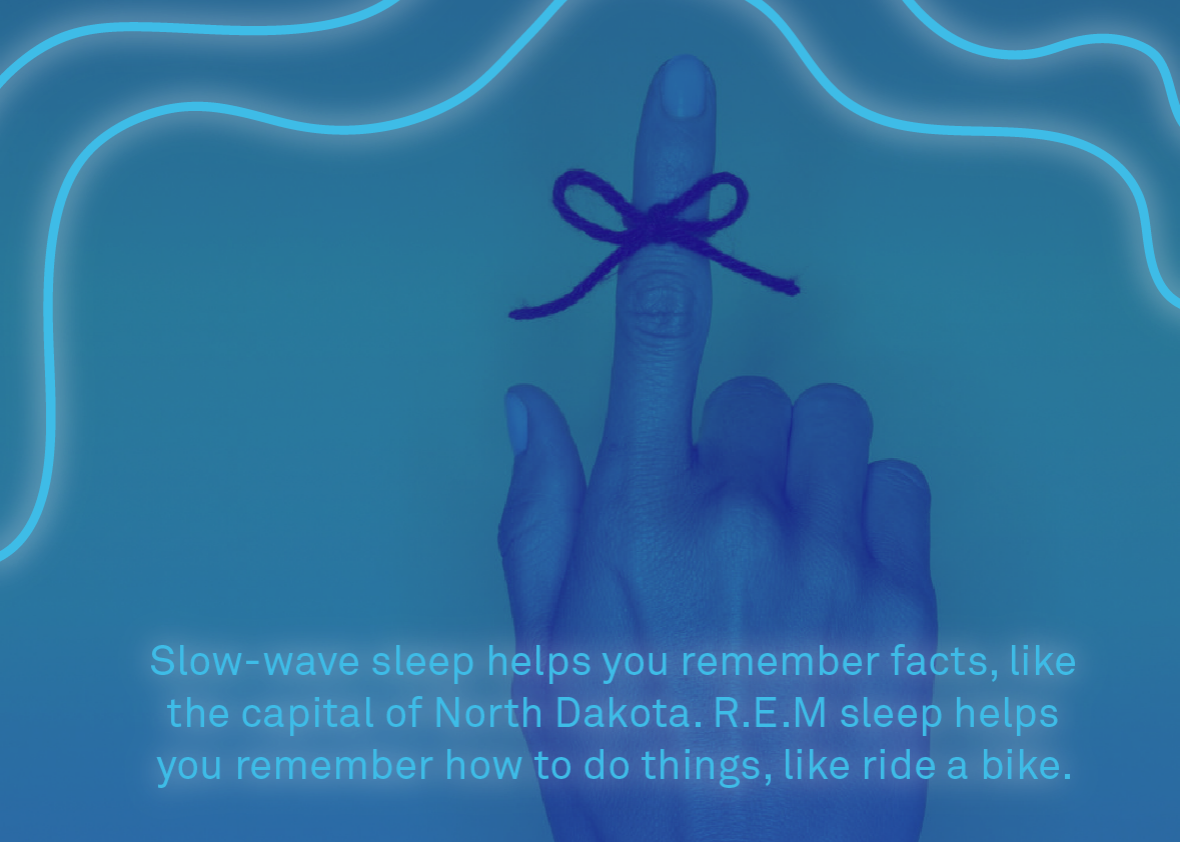
Wake-Up Call
Why You Should Make Sleep a Priority

Several years ago, a media mogul, well-known for her tireless work ethic, fainted from exhaustion and hit her head on her desk. The experience served as a “wake-up” call that prompted her to explore the value of sleep in relationship to personal and professional success.
With many Americans suffering from too much work and too little sleep, a spate of studies has recently explored this topic. The overwhelming conclusion? When it comes to personal and professional wellbeing, you really might be able to sleep your way to the top. We’re not talking about casting couches but rather, as studies show, the good old-fashioned z’s that support the mental and physical health we need to do and be our best.
An extra 60–90 minutes of sleep each night may help you:
- Think better
When you’re well-rested, you can concentrate more clearly and learn more easily and thoroughly. Then, when you sleep, the knowledge you’ve gained during the day becomes consolidated in your brain so you can remember it later.
- Be happier
Lack of sleep causes your body to produce stress hormones and affects your ability to regulate your emotions. On the other hand, studies show that getting more and better-quality sleep can boost your well being and make you feel happier.
- Eat right
If you’re craving high-carb and high-sugar foods, it could be because inadequate sleep decreases insulin sensitivity and raises the body’s levels of the hormone that makes you feel hungry while lowering levels of the one that makes you feel full. Snoozing, however, could lead to losing: One study by the University of Chicago showed that dieters who slept for 8.5 hours lost 55 percent more body fat than dieters who slept 5.5 hours.
- Catch fewer colds
Sleep bolsters your immune system, helping you ward off infection. A National Center for Biotechnology Information study showed that sleeping at least seven hours of sleep each night could make you three times less likely to develop a cold. In the long term, adequate sleep can help protect you from serious issues like heart disease, hypertension and diabetes.
- Make better decisions
UC Berkeley studies have shown that lack of sleep increases activity in the part of the brain that governs rewards but reduces activity in the part that governs impulse control and judgment. It also dulls our ability to accurately read facial expressions. So if a stranger offers you candy, you better hope you’ve gotten enough sleep so that you don’t just grab it without seeing if he’s friend or foe.
So if a little more sleep can support our efforts to be healthy, wealthy and wise, why aren’t we all sacked out right now? According to Nitun Verma, MD*, sleep medicine specialist and Chief Medical Officer at PeerWell, “There are three ways to undermine sleep: Poor timing, poor quality and poor quantity.” Here’s how always-on, global culture affects us across these areas.
Pre-Bedtime Screen Time
A 2011 survey by the National Sleep Foundation found that 95 percent of respondents frequently used some form of technology, from TV to texting, before bed. This can lead to a state called “hyperarousal,” which basically means your brain is ready to go from zero to 100 at a moment’s notice. Hyperarousal can make falling asleep more difficult and can keep you stuck in a state of light, unrefreshing sleep through the night.
Blue Light at Night
Technology in the bedroom leads to another problem. TVs, computers, laptops, smart phones, tablets and energy-efficient fluorescent and LED lighting are—like the sun—sources of “blue light.” Light on the blue end of the spectrum suppresses melatonin, the hormone that makes us feel sleepy, by twice as much as other types of light.
Workplace Pressure
Have you noticed your workweek seems to be getting longer? Unfortunately, you’re not wrong: A Gallup survey showed that Americans now work an average of 47 hours a week, with many people putting in many more hours than that, often under the stress of tight deadlines. Pressure to work better, faster and longer can lead to anxiety and depression, seriously interfering with your ability to decompress, breathe and unwind.
Irregular Sleep Schedules
In centuries past, our internal clocks were synched with the rising and setting of the sun. But modern life tends to disrupt that natural circadian rhythm. While often unavoidable, working the night shift or sleeping late on weekends to catch up on lost work-week sleep can have a profound influence on our physical and mental health and well-being.

Source: National Sleep Foundation
To Nap or Not to Nap
Even while companies and colleges across the U.S. are installing nap rooms to boost productivity, experts can’t agree whether a quick snooze will hurt you or help you. On the one hand, napping can make it harder for you to fall asleep at night. On the other, it may boost your cognitive skills, creativity and energy level.
Health Problems
From bladder issues to chronic pain, particularly back and neck pain, there are innumerable physical issues that can lead to poor quality sleep. An estimated 22 million Americans suffer from sleep-disordered breathing, which includes obstructive sleep apnea and Upper Airway Resistance Syndrome, or UARS, identified and publicized only in the last decade. According to the National Sleep Foundation, insomnia affects almost half of all Americans intermittently, making it hard for them to fall asleep or stay asleep. Depression, which affects 350 million people worldwide, has a vicious chicken-and-egg relationship with poor sleep, both causing it and being caused by it.
The takeaway: With so many ways that modern life can come between you and a good night’s rest, it’s no wonder you’re not getting enough shut-eye. But seeing how important it is to your health and wellbeing could just be your own wake-up call to make sleep a priority. No emergency-room visit necessary.
Read Why We Need Our ZZZs to find out why sleep is so important. And coming soon: How to Get the Deep Sleep You Need.
This material is for general informational purposes only. It is not meant to replace the advice, diagnosis or treatment by a physician or other health care professional. Aetna is not the author of this content.

